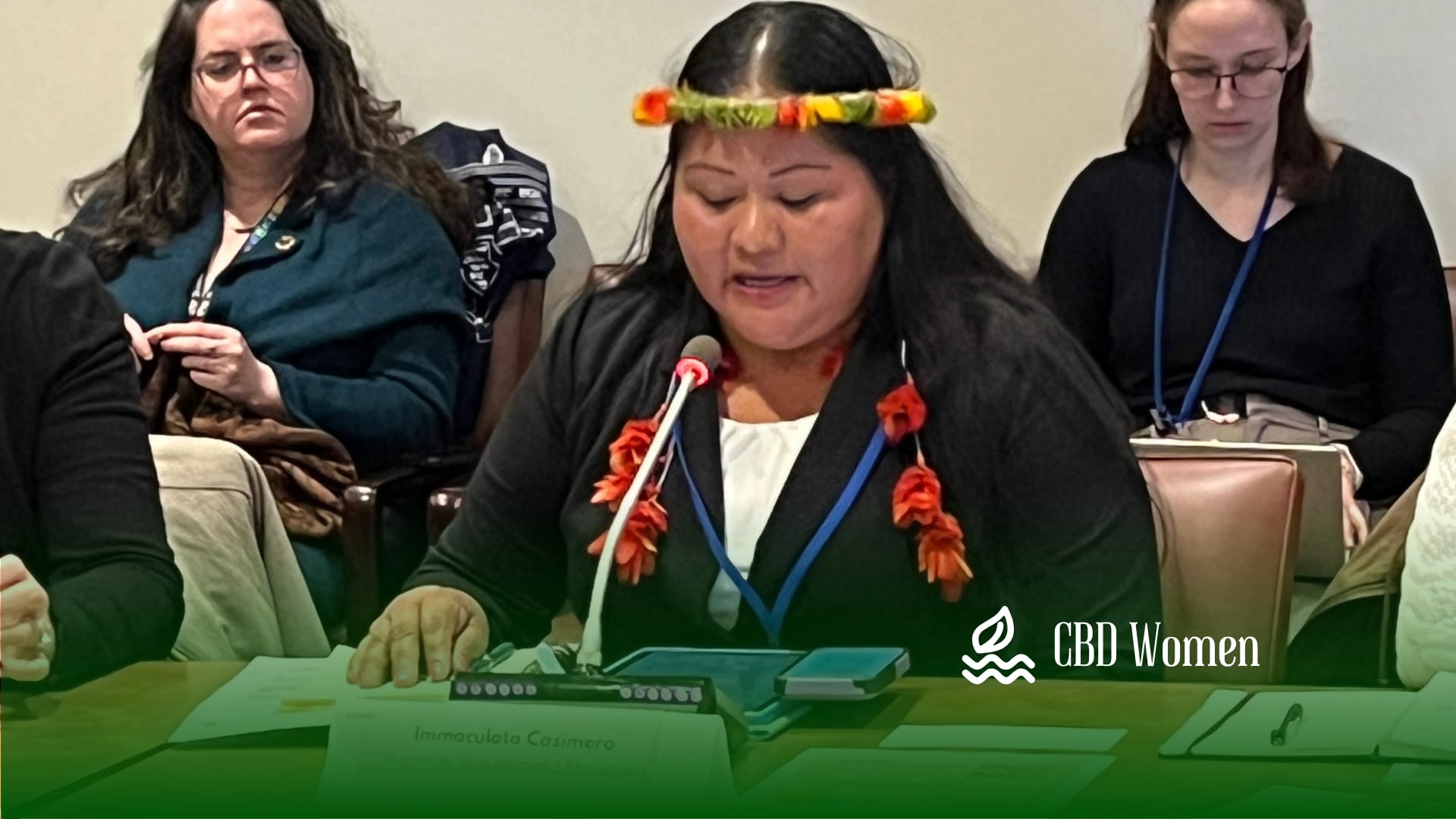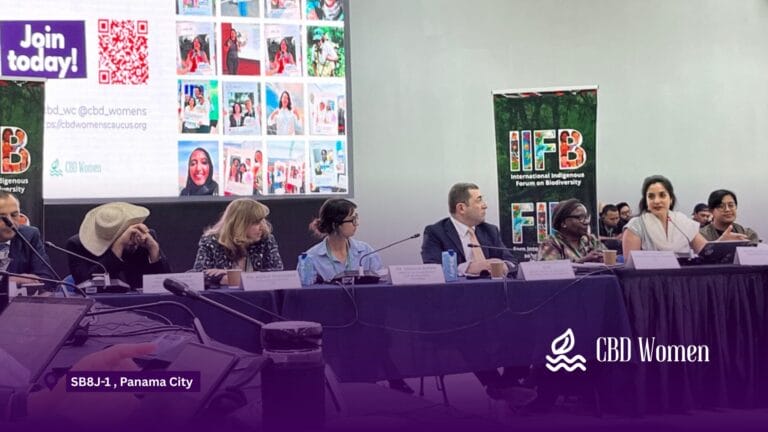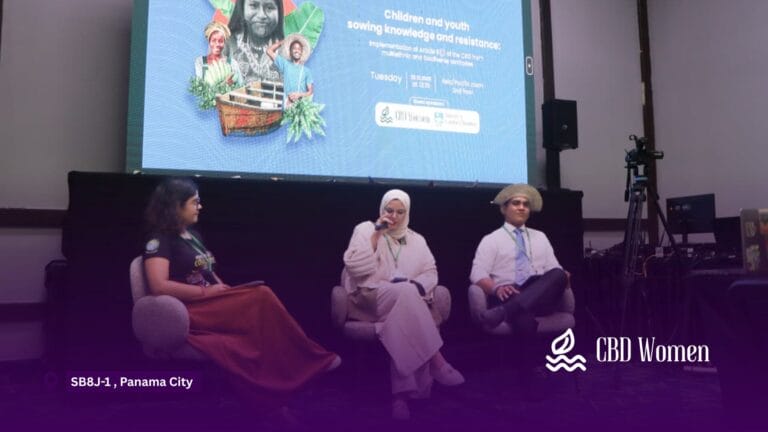By: Immaculata Casimero. Co-founder and leader of the Wapichan Women’s Movement
On March 21st, voices from across the globe gathered in Conference Room E at the UN Headquarters to reflect on a promise made decades ago—in Beijing and Rio—to achieve gender equality and environmental justice. The side event, “Fulfilling the true vision of Beijing (and Rio): a whole-of-society approach to gender and environment data,” brought together member states, UN agencies, and civil society actors to challenge conventional data systems and uplift those who are often excluded. Among them was Immaculata Casimero, a Wapichan woman from Guyana, whose message was clear: The data we need already exists in the hands of grassroots women—it’s time we start listening.
As co-founder of the Wapichan Wiizi Women’s Movement (WWWM) and Gender Affairs Coordinator of the South Rupununi District Council (SRDC), Immaculata Casimero, CBD Women’s Caucus member, spoke not only as an advocate but as a representative of 21 Indigenous communities that have long been monitoring their lands. “The SRDC is the legally recognized representative body of 21 villages in the South Rupununi,” she said, “focusing on indigenous governance, land rights advocacy, and environmental conservation.” With deep roots in their territory and traditions, the Wapichan people aren’t just observers of change—they are frontline data collectors, scientists, and protectors.
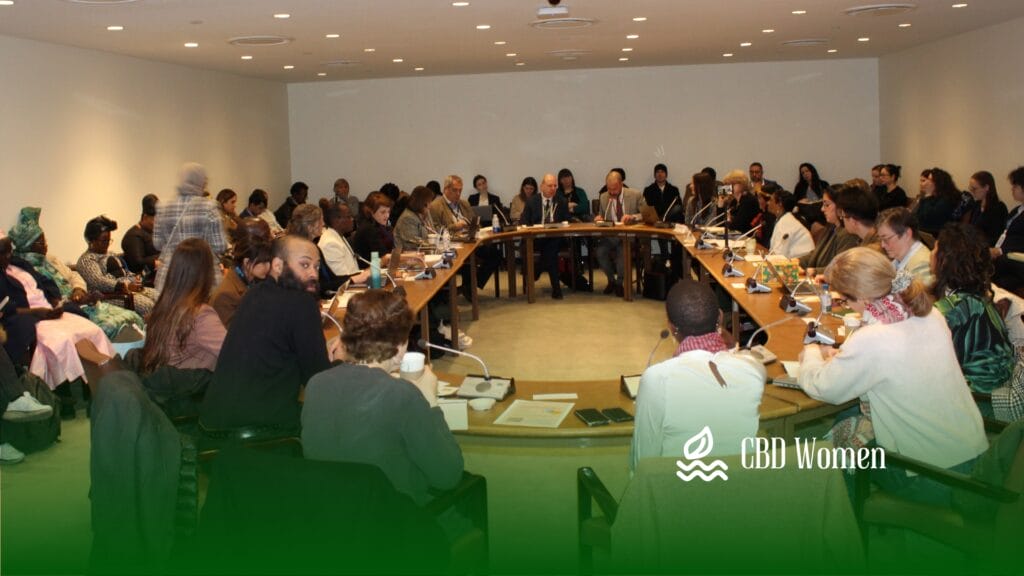
Fulfilling the True Vision of Beijing (and Rio): A Whole-of-Society Approach to Gender and Environment Data” – Side event at the United Nations Headquarters.
Photo credit: Moussa Fara DIOP / Ghali Consulting
Since 2013, Wapichan-led monitors have tracked deforestation, illegal mining, and mercury contamination in their rivers—especially around sacred sites like Marudi Mountain. “The monitoring and mapping program is more than data collection—it is a part of our Indigenous justice system, rooted in customary law and the right to self-determined governance over our lands.” Their work merges traditional knowledge with legal and scientific training, producing data that tells a far more intimate and urgent story than government statistics alone. In 2018, the SRDC found mercury levels in women’s bodies that were “higher-than-global-average,” a reality that threatens reproductive health, food systems, and survival.
However, the SRDC’s data and the people behind it remain unrecognized by their own government. “Instead of collaborating with us, the government has sidelined our work,” Immaculata stated, outlining how parallel programs erase Indigenous knowledge and undermine grassroots accountability. Despite these systemic barriers, the Wapichan communities are witnessing a quiet revolution: a 23% increase in women’s leadership over the past three years. Women are speaking up, not just as caregivers but as decision-makers advocating for land rights, clean water, and justice.
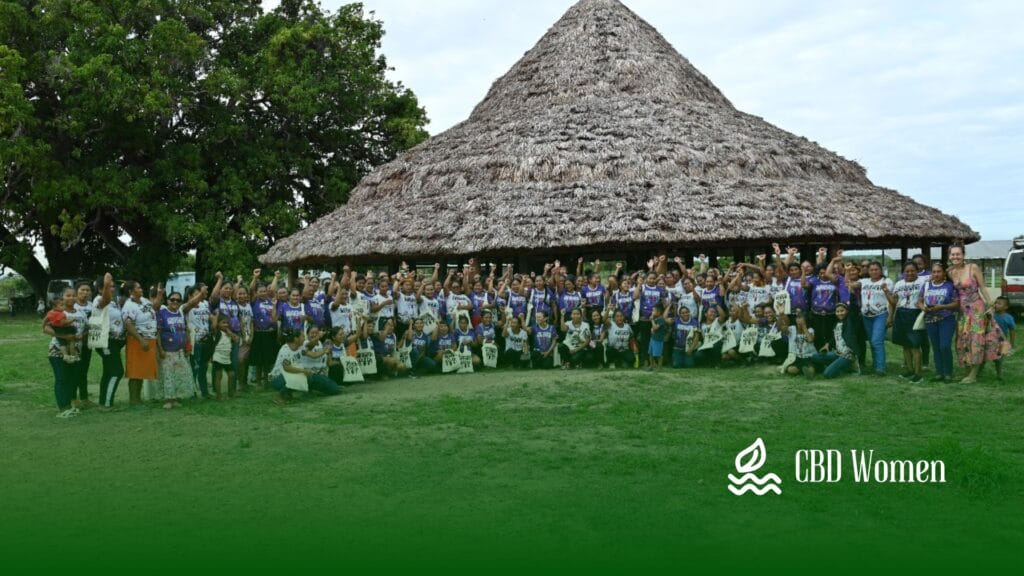
Wapichan Women’s Group at the Women’s Conference – February 14, 2025. Photo credit: South Rupununi District Council (SRDC)
Immaculata’s call echoed the very heart of the event’s message: we need a whole-of-society approach that includes—not sidelines—community-driven data. “If we integrate local, community-led data into national and global decision-making, we get a more accurate picture of environmental challenges and solutions,” she urged. Without gender-disaggregated data, the unique burdens faced by women—particularly Indigenous women—remain invisible. Without policy recognition of their monitoring programs, the risks to health, land, and life persist.
From the rivers of the South Rupununi to the polished halls of the United Nations, Immaculata reminded the world: Indigenous women are not victims of the climate crisis—they are researchers, defenders, and leaders. Their data, stories, and strength deserve not just to be heard but to shape the policies meant to protect us all.
🎥 Watch Immaculata's full intervention
🎬 Missed the event? Watch each speaker’s contribution in YouTube playlist🔗
Disclaimer: The views expressed in this blog are those of the author and do not necessarily reflect the official position or opinions of the CBD Women’s Caucus.

